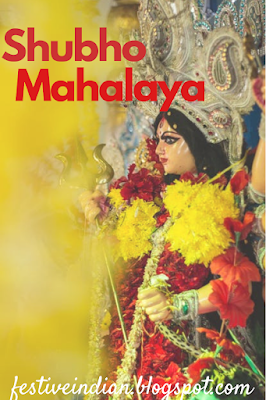Bhai Dooj: The Symbol of Love Between Brother and Sister
Bhai Dooj/Bhai Phota/Bhau Beej is a Hindu festival celebrated by a majority of people from Indian subcontinent and Nepal on the second lunar day of Shukla Paksha of the Hindu Calender. It is generally celebrated after Diwali in India and in Nepal at the Tihar festival. The celebrations at this festival are similar to Raksha Bandhan. On this day, brothers give gifts to sisters and sisters pray for the longevity and well being of their brothers.
 |
| Brothers being applied Tilak on Forehead by sisters |
The Tradition
On the day of the festival, sisters invite their brothers for a sumptuous meal. Many dishes are prepared which are given to their brothers and also to the guests. The ceremony signifies the duty of a brother to protect his sister, and sisters pray for their brothers' well being and prosperity.
Carrying forward the ceremony, sisters perform Aarti, that is preparing the
Aarti Thali; a plate(made of steel generally) which contains
Tilak and other Puja ingredients.
Different regions have different ways of observing this auspicious day, but the emotion is the same; the love between brother and sister.
 |
| The Prasad Thali |
Different types of celebrations of Bhai Dooj
 |
| The Aarti Thali in Bengali Community |
Among the Bengali Community, Bhai Phonta is celebrated in a very splendid way. The Aarti Thaali is prepared and the Tika; which comprises of a mixture of Chandan(sandalwood paste) and dew drops are smeared on the forehead of brothers by sisters, also sisters pour some Dhaan (Wheat Flake) and Dubba(A Herb) and Aarti is done. After that, homemade Payesh is served by sisters to their brothers. Afterward, gifts are given by brothers to sisters; and sometimes sisters too gift their brothers. After that as mentioned before above, meals are enjoyed everyone in a common gathering.
 |
| Bhai Beej in Haryana |
In Haryana, and parts of Maharashtra and Madhya Pradesh, Bhai Beej is celebrated with much joy and fervor. There is an interesting custom that if a woman doesn't have a brother, she does her Aarti for the Moon God. They apply Mehendi on girls as their tradition. It is therefore common to Indian Children to consider Moon as their Mama(Maternal Uncle) fondly called Chandamama as prayers are offered to the Moon by the Mother, so the Moon became their brother.
 |
| Seven colored long Tika in Nepal |
In Nepal, Bhai Dooj is called Bhaitika or Bhaitihar meaning Tihar(festival of brothers) in a very grand and pomp way. On this day, sisters pray to the Yamraj for a long and prosperous life for their brothers. The ritual involves the sisters to mark their brother's forehead with a seven-colored long Tika. Some unique famous dishes made on this occasion in Nepal are Sel Roti and Yomari, which are very popular there. The rest of the rituals are same as performed by the Hindu community anywhere else.







Comments
Post a Comment